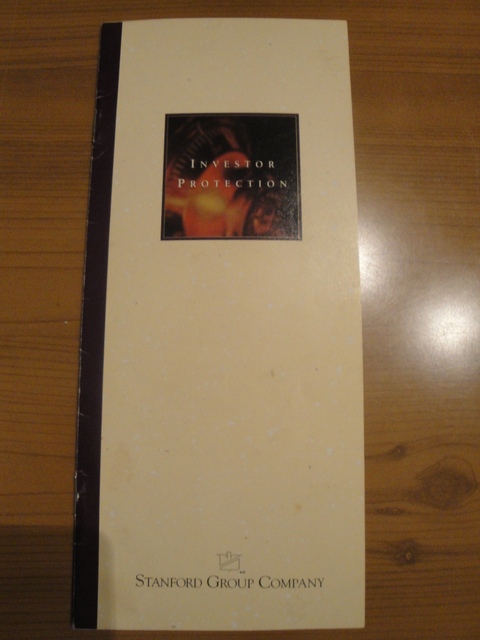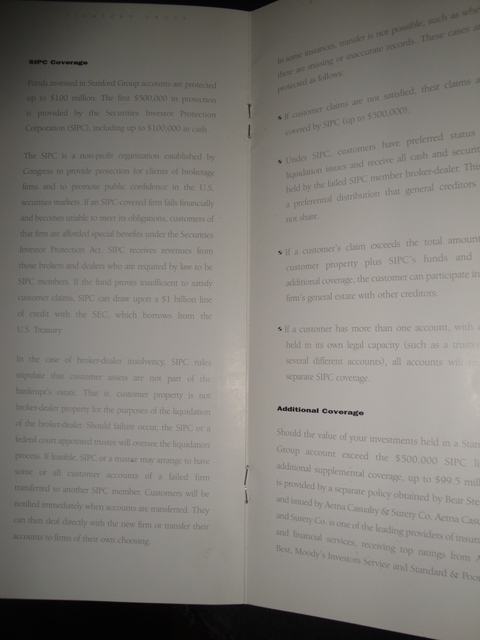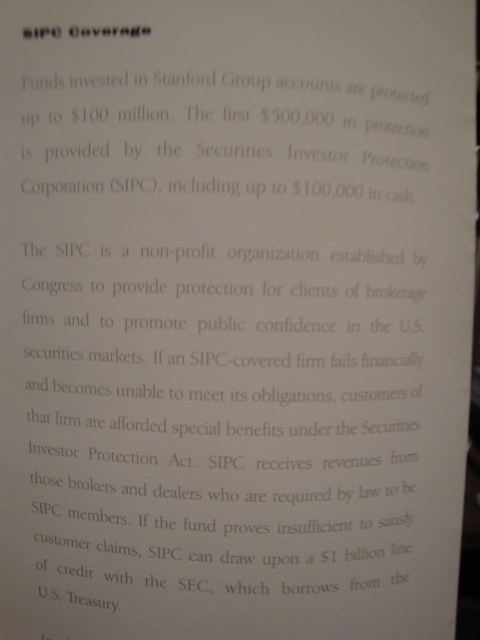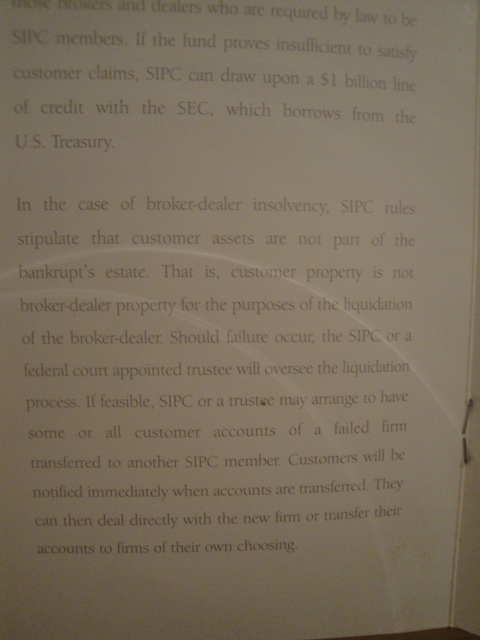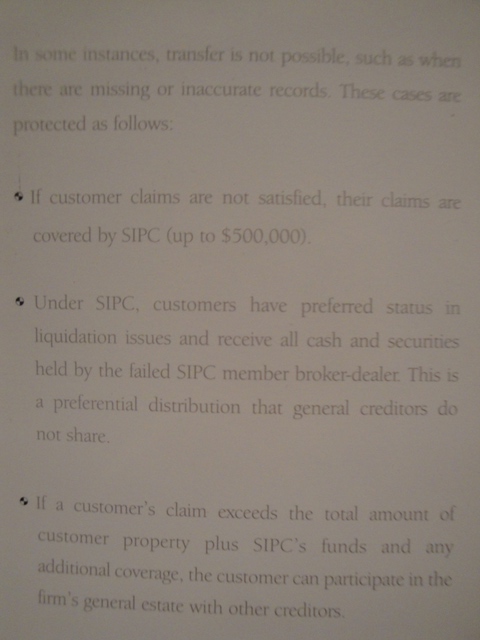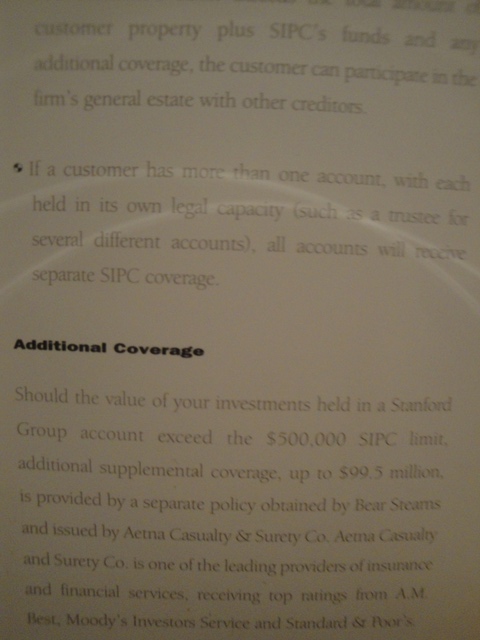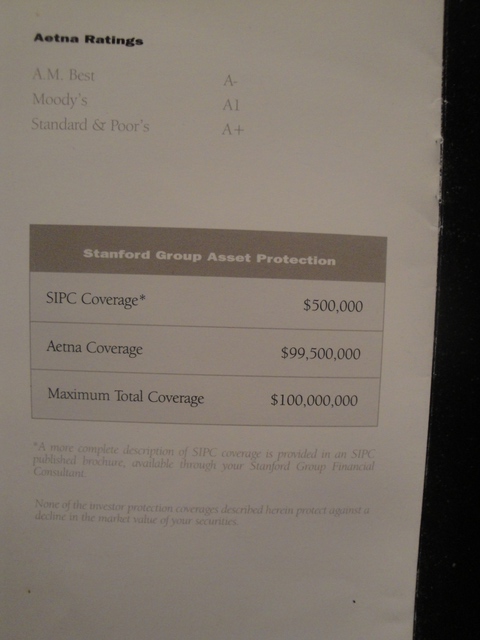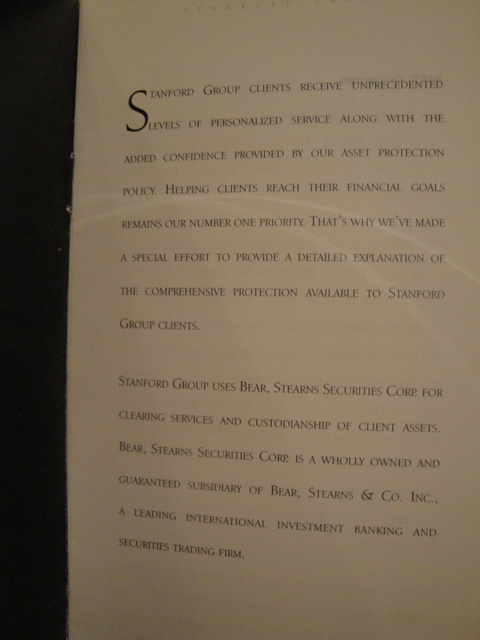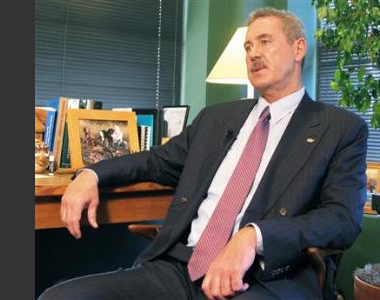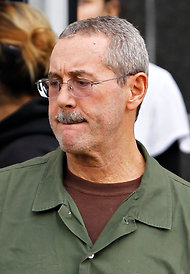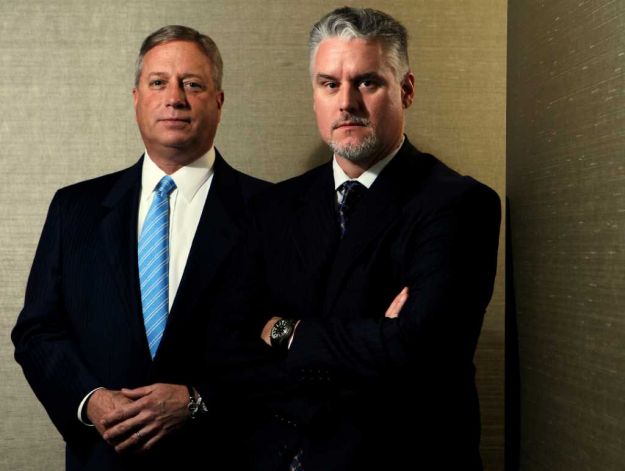A Reuters examination of his case finds that the answer
lay in part in the legal advice he obtained from former SEC
officials and other ex-regulators and law-enforcement
officials.
Among those Stanford sought help from was famed securities lawyer
Thomas Sjoblom. Then a partner at the international law firm of
Proskauer Rose and chair of its securities practice, Sjoblom also was a former 20-year veteran of the U.S.
Securities and Exchange Commission's enforcement division.
What Sjoblom allegedly did next for Stanford has drawn the
scrutiny of federal prosecutors. The Justice Department has
been investigating Sjoblom for possible obstruction of
justice, witness tampering, and conspiracy related to his efforts
to persuade the SEC to stand down from its investigation
of Stanford, according to people familiar with the probe.
Sjoblom is one of the most senior attorneys ever to be
investigated for allegedly crossing the line from legal advocacy
on behalf of a client to violating the law. He hasn't been
charged, however, and it is possible he never will be.
Stanford went on trial on Monday in federal court in
Houston on charges that he defrauded more than 30,000 investors from
more than 113 countries, and also obstructed the SEC's
investigation of him. Only Bernard Madoff is alleged to have stolen
more. Stanford has pleaded not guilty.
Prosecutors are likely, in making the obstruction portion
of their case against Stanford, to detail Sjoblom's alleged role
in assisting Stanford in that effort. Attorneys began
their opening arguments on Tuesday.
IMMUNITY SOUGHT, AND REJECTED
People with first-hand knowledge of the matter say that
Sjoblom had offered the Justice Department his testimony against
Stanford in exchange for a grant of immunity from
prosecution for himself - an offer rejected by the Justice Department.
Prosecutors demanded a formal acknowledgment by Sjoblom of
his own alleged criminal participation in an attempt by
Stanford to derail investigations by the SEC, according to
people involved in the discussions.
Sjoblom declined to answer questions when reached by telephone as well as inquiries submitted to him by email.
Ordinarily, attorneys are precluded from being witnesses
against former clients because of the attorney-client privilege.
But under a legal doctrine known as the crime-fraud
exception, an attorney can tell what he knows if his client has sought
advice that would abet the commission of that fraud or
some other criminal act - or in rare instances, if the attorney
himself aided a crime. The crime or fraud disclosed or
discussed must also then occur for the attorney to be able to
testify. If Sjoblom had testified against Stanford, he
would have been one of the most prominent attorneys to turn against
such a client.
THE STANFORD EIGHT
The trials could cast light on the broader mystery of how
the alleged Stanford fraud could have gone on so long even
though federal regulators were examining the Texas
financier for years. The case has put the SEC and other federal
agencies in an embarrassing light, creating fresh fodder
for critics of the revolving door between government and the
private sector.
Stanford, Reuters has found, paid at least eight former
senior U.S. and foreign regulators and law-enforcement officials
for legal advice or investigative services.
Among the former government figures who worked for
Stanford is Spencer C. Barasch, who headed the enforcement division of
the SEC's office in Ft. Worth, Texas.
Barasch agreed this month to pay a $50,000 fine for
allegedly violating federal ethics laws by representing Stanford after
overseeing regulation of Stanford's U.S. brokerage
businesses. It is illegal for many former federal regulators, including
those at the SEC, to represent private clients if they
have "personally and substantially" participated in any matters
related to those clients during the course of their
government employment.
Examiners at the SEC had suspected as early as 1997 that
Stanford was engaged in a Ponzi scheme and felt the SEC should
investigate. But year after year, until 2005, their
warnings and calls for investigation were ignored by higher-ups.
A FRIEND IN FT. WORTH
In January 2009, the SEC was seeking the sworn testimony
of both Stanford and James Davis, the chief financial officer
for Stanford International Bank. Davis, Stanford's top
deputy, has since pled guilty to securities-fraud and mail-fraud
charges and has become a government witness against
Stanford and others.
Stanford sought to delay and wear down regulators and
investigators, Davis and other witnesses told the government,
according to a 2009 plea agreement between Davis and
federal prosecutors filed in federal court in Houston.
In 1997, 1998, 2002, 2004, and 2005, according to internal
agency records seen by Reuters, examiners for the SEC
recommended that the agency investigate Stanford. In three
of those instances, Barasch, at the time an SEC official in
Ft. Worth, personally overruled the examiners'
recommendations, according to those records. Those decisions helped the
Ponzi scheme to continue unabated for several additional
years, costing investors additional billions of dollars,
according to a report by the SEC's Inspector General.
Barasch told the SEC Inspector General that he made those
decisions because he was not sure the SEC had the statutory
authority or jurisdiction to investigate. He blamed his
superiors and a broader culture within the SEC for pressuring
the staff not to pursue complex and difficult cases,
according to the Inspector General report.
In his final days at the SEC in 2005, Barasch overruled
examiners one last time on a request to investigate Stanford,
according to the Inspector General report and interviews
with SEC officials. The SEC's formal investigation of Stanford
began exactly one day after Barasch left the agency.
Barasch referred questions to his lawyer; his attorney didn't respond to requests for comment.
REVOLVING DOOR
"This misconduct highlights the dangers of a 'revolving
door' environment between the SEC and the private securities law
bar," outgoing SEC Inspector General H. David Kotz said in
statement about the Barasch case.
The Justice Department's agreement with Barasch was
reported by Reuters earlier this month. The SEC, which has the
authority to bar professionals from practicing before the
agency, has not announced any disciplinary action.
The SEC is also preparing a separate civil case against
another former regulator, Bernerd Young, who worked as a
compliance officer for Stanford's bank, said a person
familiar with the matter. Before he worked for Stanford, from 1999
to 2003, Young was a district director of the Dallas
office of the National Association of Securities Dealers, which was
then the brokerage industry's self-regulator. Regulation
of the industry has since been taken on by a successor agency,
the Financial Industry Regulatory Authority.
Young was notified by the SEC staff last June that they
were preparing a civil complaint against him for securities-law
and other violations and seeking a lifetime ban on his
employment in the securities industry, according to a person who
reviewed the SEC's notification to Young. Young hasn't
been charged with any wrongdoing.
In November 2007, the Financial Industry Regulatory
Authority charged that Stanford had used "misleading, unfair and
unbalanced information" and fined him $10,000, but with no
admission of guilt. Young was central to decisions by the NASD
not to take tougher action against Stanford, according to
government officials involved in the matter.
Randle Henderson, an attorney for Young, said Young had
"done absolutely nothing wrong" and that he and Young had been
cooperating with SEC investigators. If an enforcement
action was brought, Henderson said, he and his client would engaged
in a "full and complete and aggressive defense" of the
allegations.
THE AIRCRAFT HANGAR SESSION
Sjoblom began work for Stanford as early as 2005, as the
SEC began a formal investigation. Barasch began representing
Stanford in September 2006.
Barasch's successor at the SEC had reversed course and
given a green light for the SEC to investigate. Stanford believed
that hiring former SEC officials was the best course to
thwart the agency, according to emails written by Stanford to
subordinates and later cited by the SEC's Inspector
General.
Barasch worked on the case until December 2006, dropping
out after SEC ethics officers warned him that any further
involvement would violate a federal law.
On January 21, 2009, Stanford, his deputy Davis and other
senior executives of the Stanford International Bank met
Sjoblom in an aircraft hangar in Miami, Florida, to devise
a strategy for fending off the SEC, according to the Davis plea
agreement entered in Houston federal court.
Stanford, a bulky man with a thick mustache, paced
nervously in the aircraft hangar, according to an account one of the
attendees gave to federal investigators. In contrast,
Sjoblom appeared calm and collected as they discussed their next
move, the attendee told federal investigators.
The group allegedly agreed on a strategy: Sjoblom would go
to the SEC and tell officials that both Stanford and Davis
knew very little about the business they ran. Instead, he
would tell them, two other, lower-ranking executives of the
Stanford International Bank understood much better how the
bank invested customers' money. He would then propose that
they testify in place of Stanford and Davis, according to
the plea filed in federal court in Houston.
SJOBLOM'S STRATEGY
Sjoblom knew that these assertions were false, and was also by then aware that Stanford had engaged in a massive
financial fraud, according to the Davis plea. Still, Sjoblom moved forward with the effort to obstruct the SEC
investigation, the Justice Department alleged in the Davis plea.
Early the next morning, on Jan 22, 2009, Sjoblom met in
Houston with attorneys for the SEC, according to the Davis plea.
There, Sjoblom told the SEC staff that Stanford and Davis
did not "micro-manage" clients' portfolios. Taking Sjoblom's
word, the SEC agreed to delay the testimony of Stanford
and Davis, according to the plea filed in Houston federal court.
The Justice Department has since alleged that Sjoblom's
actions constituted an obstruction of their investigation. Based
in part on information given them by Davis, federal
prosecutors alleged that Sjoblom continued trying to prevent the SEC
from learning the truth even after Sjoblom learned about
Stanford's massive fraud.
After convincing the SEC to forego Stanford's and Davis's
testimony, Sjoblom allegedly helped prepare Laura
Pendergest-Holt, Stanford International's chief investment
officer, to testify in their absence, according to the Davis
plea and an indictment against Pendergest-Holt in federal
court in Houston.
Prosecutors allege that in reality, Stanford and Davis
were the only two Stanford executives intimately familiar with the
finances of the company. Pendergest-Holt only learned the
full extent of the fraud around the same time that Sjoblom did,
when the two were preparing her to testify before the SEC,
federal prosecutors assert. Pendergest-Holt and Sjoblom learned
then that the firm was insolvent and most of its financial
claims fictional, prosecutors allege in the Pendergest-Holt
indictment and the Davis plea.
On February 5, Stanford admitted to Davis and Sjoblom that
his bank's "assets and financial health had been misrepresented
to investors, and were overstated," according to Davis's
plea agreement with prosecutors.
$4 MILLION MORE?
Instead of dropping Stanford as a client and setting the
record straight with the SEC, Sjoblom went back to Davis and
Stanford with an offer, Davis told the FBI, according to a
person familiar with the case. Sjoblom told the pair that they
both faced serious criminal jeopardy and asked each to pay
him a retainer of $2 million to represent them personally, for
a total of $4 million, this person said. That money would
have been in addition to what Stanford's firm had already paid
Sjoblom's firm. It is not clear whether the additional
money was paid.
On February 10, Pendergest-Holt gave testimony to SEC
officials. That morning, Davis admitted in his guilty plea, he
phoned Pendergest-Holt and encouraged her to lie to
"continue to obstruct the SEC investigation," according to the Davis
plea agreement.
During her testimony, Pendergest-Holt said she knew little
about the assets the SEC wanted to know about. All during her
testimony, Sjoblom sat at her side, as five attorneys from
the SEC's enforcement division fired away questions.
A federal grand jury later indicted her on obstruction of
justice and conspiracy charges related to her allegedly false
testimony. She is currently awaiting trial. Her lawyer
declined to comment.
The indictment of Pendergest-Holt also implicated Sjoblom.
"Holt, Attorney A and others would make false and misleading
statements to the SEC staff attorneys in order to persuade
them to delay" Stanford's testimony while Pendergest-Holt
would "provide false testimony," the indictment alleged.
Days after Pendergest-Holt's testimony, on February 14,
Sjoblom resigned as a lawyer for Stanford and wrote to the SEC:
"I disaffirm all prior oral and written representations
made by me and my associates to the SEC staff."
Federal prosecutors are looking to Pendergest-Holt to see
if she corroborates Davis' testimony regarding Sjoblom, and
will then decide whether to charge Sjoblom, according to
sources close to the case. (editing by Martin Howell and Michael
Williams)
|
